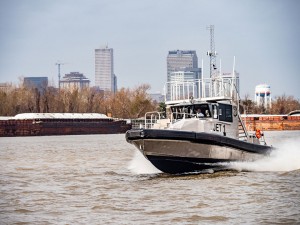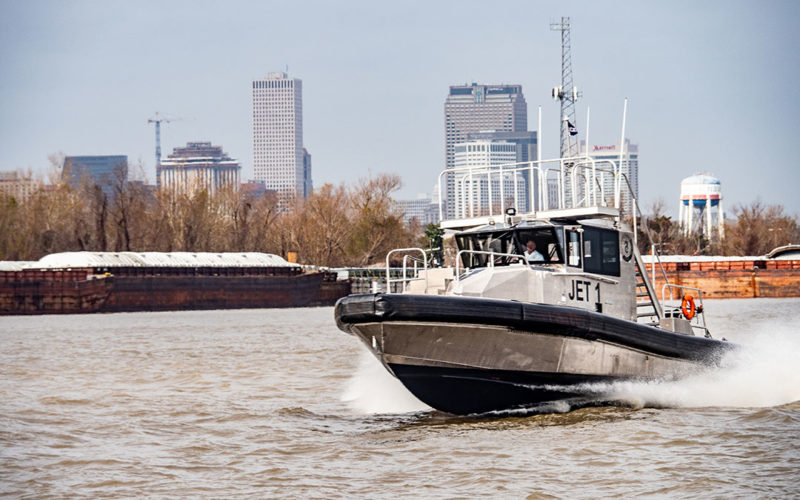
Lower Mississippi River pilots faced scrutiny this spring from Louisiana lawmakers and industry groups targeting their salaries, fees and hiring practices.
The three pilot associations ultimately beat back new oversight and regulation, but the campaign placed fresh emphasis on the groups’ perceived insularity and lack of diversity.
“There is a severe problem with diversity industry-wide,” said Jack Anderson, president of the Crescent River Port Pilots Association oversight board. “We’ve been struggling with this for 30 years that I’ve known about. But every woman and every African American who has applied and met the qualifications is a pilot today.”
One exception, he said, was a mariner thrown out for substance abuse during their apprenticeship.
Of 122 Crescent pilots, four are Black, five are Asian and five are Hispanic. Anderson said these numbers roughly correlate with the racial breakdown at the United States Merchant Marine Academy, which is about 1.5 percent Black, 6.4 percent Asian and 5.7 percent Hispanic. Where Crescent pilots’ statistics lag the Academy’s, however, is with the number of women, with 22 percent female at the Academy compared to 4 percent among the Crescent pilots.
There are three pilot associations on the Lower Mississippi River. The Associated Branch Pilots operate between the Gulf of Mexico and Pilottown, the Crescent pilots work from Pilottown to New Orleans, and the New Orleans-Baton Rouge Steamship Pilots Association (NOBRA) pilots operate between New Orleans and Baton Rouge. Each of these associations has its own oversight board made up of existing pilots, and those boards vote on who can be made a pilot.
“Pilots associations throughout the country are monopolies, but most of them have boards that include court officials and industry representatives,” said state Rep. Thomas Pressly, a Shreveport Republican. “Louisiana has the only pilot associations that are completely self-governed, and that’s an issue for Louisiana if we want to grow our ports. We want to be sure there’s a place where industry can voice their grievances and be heard.”
“We see a lack of oversight,” said Tyler Gray, president of the Louisiana Mid-Continent Oil and Gas Association. “They have more politically affiliated pilots—with the same last names—than they do women or African Americans.
NOBRA Pilot Lee A. Jackson Jr. said, “NOBRA, along with other pilot associations in Louisiana, is developing and accelerating programs to address the disparities in our industry. We have come together to establish a Diversity & Inclusion initiative that will bring awareness, advocacy, and opportunity to our great industry.”
The Associated Branch Pilots declined to comment.
Complaints about nepotism and a lack of diversity aren’t new. Neither are complaints about the pilots’ salaries, which typically exceed $500,000 a year. Last summer, the Crescent pilots requested a rate increase to put their pay in line with the NOBRA pilots, whose salaries top out at $697,999. The group also wanted authority to add another 28 pilots to their association.
“When they made this outlandish request, it woke up our members, who said this is too much,” said Gray, who helped write the bill Pressly sponsored this spring.
The original proposal addressed several issues related to pilots’ qualifications and equal opportunity, and would have added transparency about hiring practices, membership and nepotism. Most significant, it would have given industry representatives a greater role overseeing these pilot groups.
The pilot associations argued Pressly’s bill and the changes it proposed would threaten safe navigation on the river. Making changes to a system safely handling 20,000 ships a year, Anderson argued, would be “dangerous.”
Pressly is the fifth Louisiana lawmaker who’s tried to enact pilotage reforms over the last 20 years. His bill ultimately died in the State Senate, although he said the effort could still lead to positive changes.
“I’m hopeful that we’ll see some reforms,” he said. “And if we don’t, I’ll likely bring another bill forward.”

